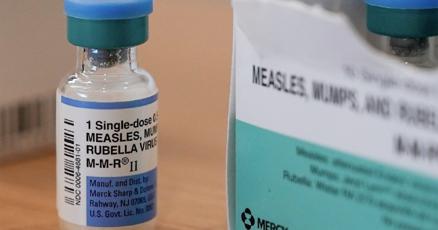I’ve been tracking Toronto’s public health situation closely this week, and concerning news has emerged from Peel Region. Two new measles cases have been confirmed by Peel Public Health officials, raising alerts throughout the Greater Toronto Area.
The health agency released information yesterday identifying specific exposure locations where the public may have come into contact with the highly contagious virus. These sites include several high-traffic areas in Mississauga and Brampton.
“Measles spreads through air droplets when an infected person coughs or sneezes,” explains Dr. Nancy Ackerman, a Toronto infectious disease specialist I spoke with. “What makes it particularly concerning is that the virus can remain active in the air for up to two hours after an infected person has left the area.”
According to Peel Public Health’s alert, anyone who visited Square One Shopping Centre in Mississauga last Saturday between 2 p.m. and 6 p.m. may have been exposed. The agency also flagged Brampton Civic Hospital’s emergency department during specific hours on Sunday.
As a journalist who’s covered several infectious disease outbreaks, I’ve observed how quickly measles can spread in dense urban settings like ours. The virus is particularly dangerous because infected individuals can transmit it before showing symptoms themselves.
“The incubation period for measles typically ranges from 7 to 21 days,” notes Dr. Ackerman. “This means someone exposed at these locations might not develop symptoms until early April.”
Symptoms to watch for include high fever, cough, runny nose, and a red rash that begins on the face and spreads downward. The distinctive rash usually appears 3-5 days after initial symptoms begin.
Peel Region’s Medical Officer of Health has urged anyone who visited the exposure locations to check their immunization status immediately. Those who aren’t fully vaccinated with two doses of the MMR (measles, mumps, rubella) vaccine should contact their healthcare provider.
While covering Toronto’s public health initiatives last year, I learned our region maintains generally high vaccination rates. However, pockets of under-vaccinated communities remain vulnerable to outbreaks.
Toronto Public Health data shows approximately 92% of school-aged children are fully vaccinated against measles. However, that still leaves thousands of children potentially susceptible to infection.
“What we’re seeing in Peel Region serves as an important reminder about the value of maintaining high community vaccination rates,” says Maria Fernandez, a public health nurse I interviewed at a downtown Toronto clinic.
Health officials stress that measles can cause serious complications including pneumonia, encephalitis (brain inflammation), and even death in rare cases. Children under five and adults over 20 are at higher risk for these complications.
The Ontario Ministry of Health has established a hotline for concerned residents who believe they may have been exposed. They advise calling ahead before visiting any healthcare facility if you suspect you have measles, to prevent further transmission.
As someone who follows Toronto’s health trends closely, I’ve noticed measles cases appearing more frequently in recent years after a period of near-elimination. Public health experts attribute this to declining vaccination rates and increased global travel.
“These cases didn’t originate in isolation,” Dr. Ackerman tells me. “They reflect broader patterns of disease reemergence we’re seeing across North America.”
Peel Public Health continues monitoring the situation closely and has promised additional updates as more information becomes available. Officials emphasize that the best protection remains vaccination, which is free and widely available throughout the Greater Toronto Area.
For the latest information on exposure sites and public health recommendations, residents should visit the Peel Public Health website or contact their healthcare provider directly.







